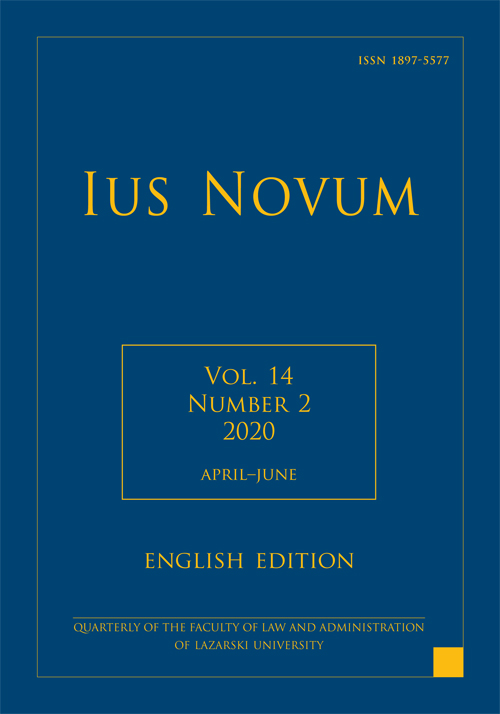Abstract
The article attempts to interpret the term ‘harassment’ that is used in Article 190a CC. The author presents the doctrinal opinions on the issue as well as the findings of empirical research (and concise legal-comparative comments), and draws a conclusion that harassment means repetitive intentional conduct in the form of action (and exceptionally also omission), of identical or different type, performed against the aggrieved persons’ will, constituting their torment, suffering or humiliation, and causing harm or discomfort, the sense of danger or the violation of privacy. For the offence under Article 190a § 1 to be recognised it is required that this harassment be persistent. It is not possible to determine in abstracto how long the period should be to match this feature; it should be determined each time in the light of the circumstances of a given case. Thus, it seems that it can be a period of a few days (e.g. in the case of text messages sent by a perpetrator every day) and a few months (when harassment is committed with a few days’ intervals). It can be believed that by including the feature of persistence in Article 190a CC, the legislator in fact has limited the legal protection of the aggrieved. The author presents a stance that there is a real possibility of a situation in which harassment is mutual (by analogy to mutual mistreatment which is possible, in the author’s opinion). It should be recognised that neither the construction of statutory features of the offence under Article 190a nor the nature of the phenomenon are an obstacle to adopting the construction of mutual harassment.
